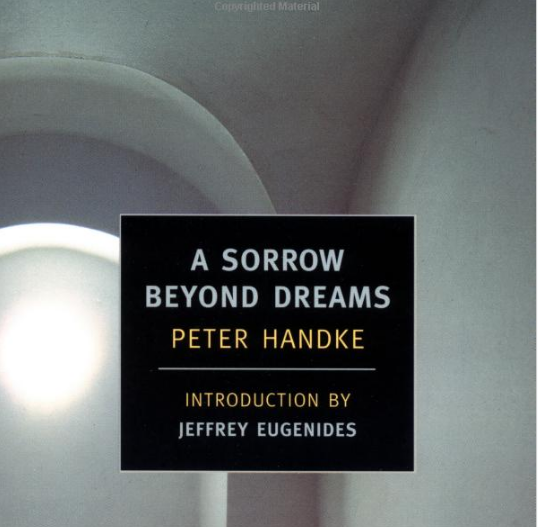There is a scene in Jeffrey Eugenides’s novel The Marriage Plot where a class of American students discusses A Sorrow Beyond Dreams by Peter Handke. A know-it-all boy with a penchant for Barthes says he found the book “totally dank and depressive” and “loved it.”
“Suicide is a trope,” he announced. “Especially in German literature. You’ve got The Sorrows of Young Werther. You’ve got Kleist. Hey, I just thought of something.” He held up a finger. “The Sorrows of Young Werther.” He held up another finger. “A Sorrow Beyond Dreams. My theory is that Handke felt the weight of all that tradition and this book was his attempt to break free.”
At this point, the teacher reminds him that the original German title, Wunschloses Unglück, has no “sorrow” in it: this “serious and strangely wonderful title,” a play on the phrase wunschlos glücklich (“happier than you could ever wish for” ), could be translated as “extreme unhappiness.” The student, without batting an eyelid, proceeds to explain what the author wanted to achieve with the book. READ MORE…

